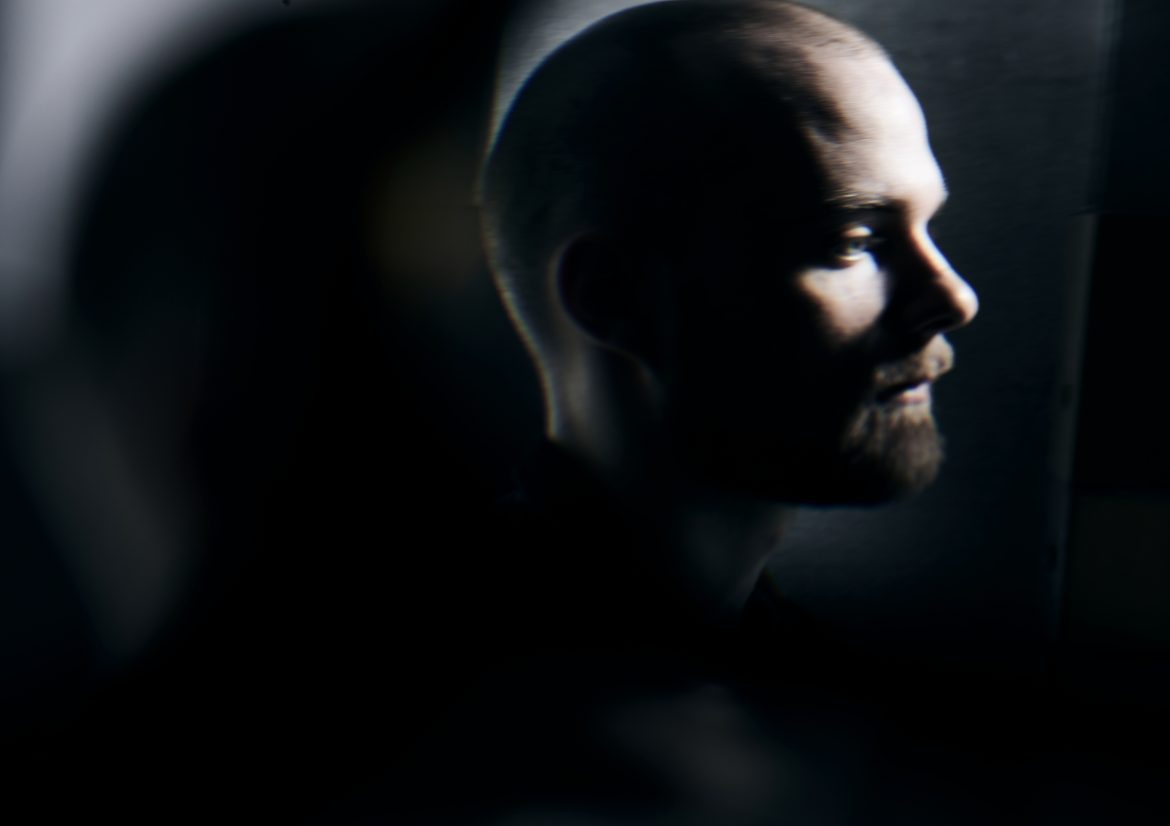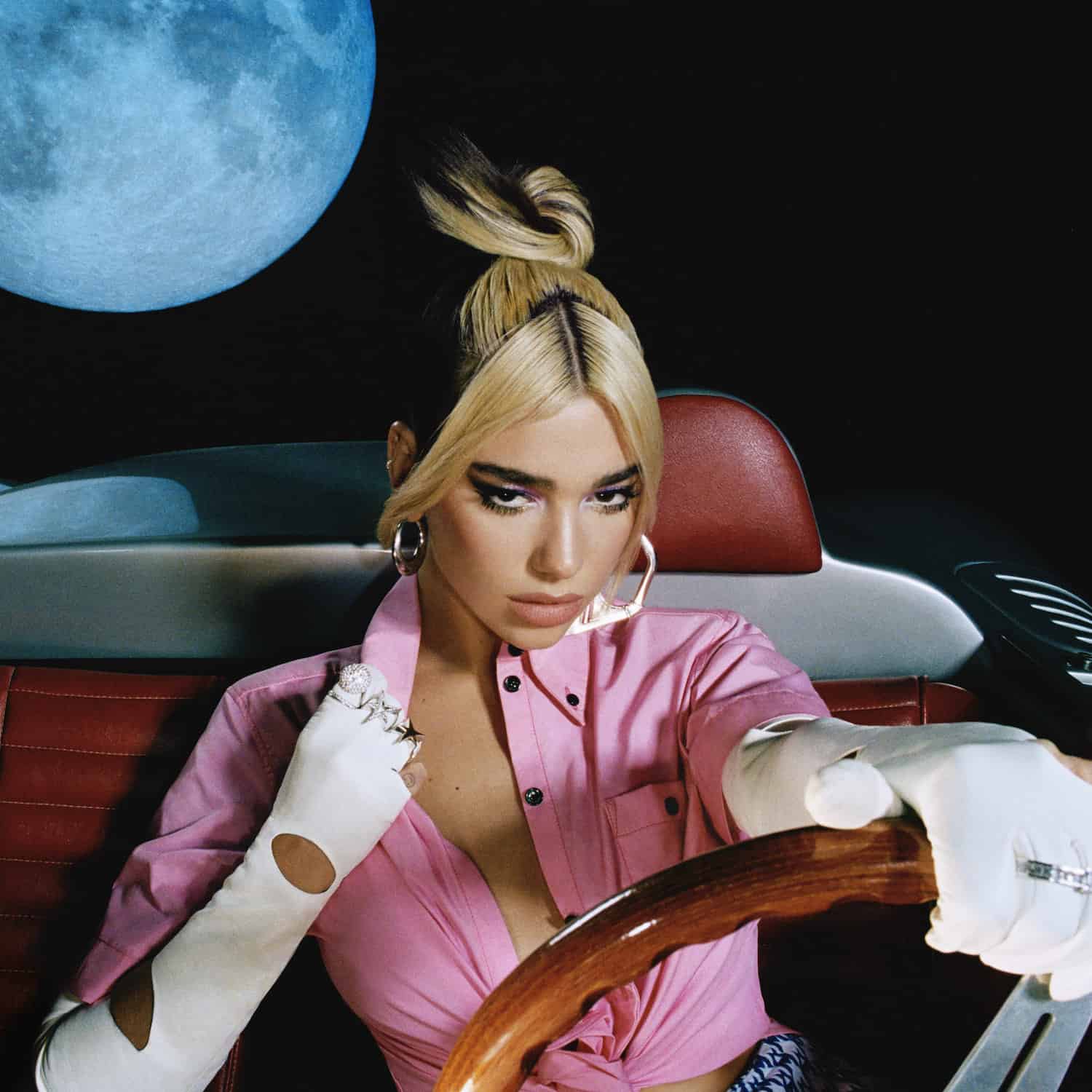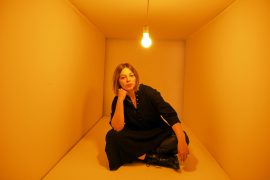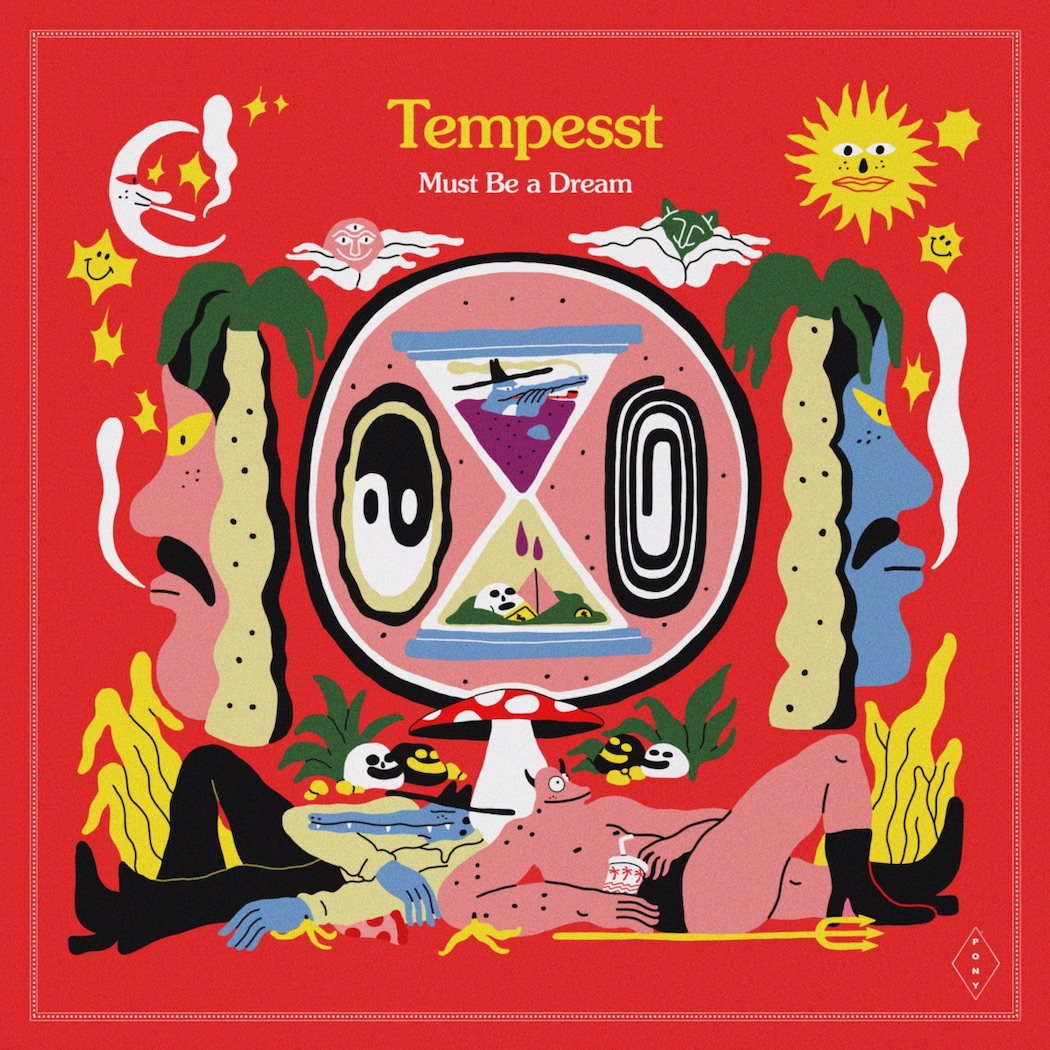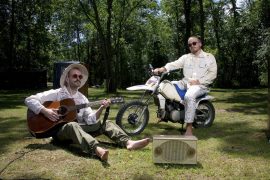Ásgeir’s ‘The Sky Is Painted Gray Today’ EP is a collection of kaleidoscopic sound written by the boy who survived.
Stream: ‘The Sky is Painted Gray Today’ – Ásgeir
The music of Icelandic singer-songwriter Ásgeir Trausti Einarsson, known by the mononym Ásgeir [aus:ceir], is a kaleidoscope of styles and experiences all set in motion by a uniquely collaborative team. From his Icelandic debut album, Dýrð í Dauðaþögn (2012, Sena), Ásgeir has worked with his father, acclaimed poet Einar Georg Einarsson, and band member Julius Robertsson, to write Icelandic lyrics to accompany his musical stylings. After Dýrð í Dauðaþögn was released, Ásgeir worked with American singer/ songwriter and Iceland resident, John Grant (The Czars), to translate those lyrics into an English version of the album called In The Silence (2014, One Little Independent). In The Silence was so well received by English speaking audiences that Ásgeir decided to use the same collaborative writing method for each subsequent album. His second album, Afterglow (2017, One Little Independent) sported a few Icelandic tracks while Bury the Moon (2020, One Little Independent) was born with an Icelandic fraternal twin album called Sátt. His most recent release, The Sky Is Painted Gray Today (out September 3 2021 via One Little Independent), is no different.
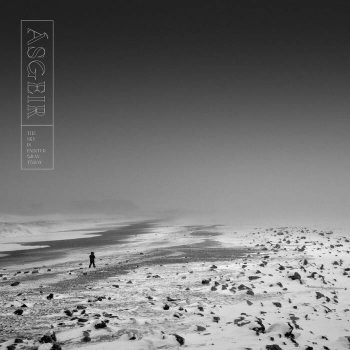
This time around, by including fellow Icelandic musician Pétur Ben to his songwriting team, Ásgeir added yet another layer of texture to his sound. Together, the team worked seamlessly to create accessible music that still retains its own unique personality. Whether they’re using acoustic instruments or electronic accoutrement, these albums represent so many different kinds of sounds and lyrical perspectives that every listener is bound to find something exciting in each one.
In many ways, The Sky is Painted Gray Today represents a return to the past both in sound and story. While his second and third albums Afterglow and Bury the Moon explored an electronic/synthesized path, The Sky is Painted Gray Today sticks close to Ásgeir’s original acoustic/folk sound. In keeping with this theme, The Sky Is Painted Gray Today features a song called “Sunday Drive.” A vivid story from Ásgeir’s own youth, “Sunday Drive” delicately recounts a terrifying car accident he was involved in. Although he bounced back rather quickly, the events of that day were definitely seared into Ásgeir’s memory. When he found a news article explaining the details of the story, Ásgeir decided that it’d be a good place to start writing about events from his own life. Set to a soundscape of softly strumming guitars, Ásgeir and his father articulated a slow-motion nightmare scene as the car barreled down the mountain, smashing into pieces with little Ásgeir trapped inside.
Tires turn and slowly crushed the ground
I still hear a terrifying sound
I search for help and meet my mother’s eyes
She stares back completely paralyzed
– “Sunday Drive,” Ásgeir
Also featuring songs “The Sky is Painted Gray Today,” “Sister,” and “On The Edge,” it’s clear that the subject matter does not need to be traumatic in order for us to feel each twist. Joining Atwood Magazine via Zoom from his home base in Iceland, Ásgeir led us through his impressive creative process, answering questions while sipping from a mug of tea.
— —
:: stream/purchase ‘The Sky Is Painted Gray Today‘ here ::
A CONVERSATION WITH ÁSGEIR
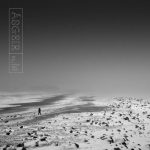
Atwood Magazine: I know you’ve been busy. Thank you so much for taking some time to have this conversation with me.
Ásgeir: Yes. We just came back from Italy a few days ago. We got to play our first shows in a long time. During the pandemic we had to cancel all of our shows for the last album. But we spent a lot of time in the studio trying to make something good come out of it.
In terms of the pandemic it was hard in other ways. My father, for example, is pretty old so I didn’t get to see him as much as we wanted to. The isolation was pretty rough on him. I just tried to work, and my girlfriend and I were with each other so we weren’t totally alone.
I’m so glad you guys had each other. So For this EP, you got back together with your father (Einar Georg Einarsson), John Grant, and Pétur Ben. What is the process like when you write an album with such a talented group of people?
Ásgeir: It has sort of evolved over the years. But our songs are almost always written in Icelandic first. And that’s either by my father or my friend Julius. He’s written a lot of lyrics for me.
Julius is the musician who performs with you, right?
Ásgeir: Yup, exactly. He’s a really big part of our music. The first album we wrote in Icelandic first and then John Grant translated the lyrics pretty literally. But then after the first album we’ve done a lot of different things. In some of our songs the Icelandic lyrics have been totally different from the English ones. Sometimes the English lyrics are just based on the Icelandic versions. On this album there is a song that Is based on the same idea as the Icelandic one. My dad had written a song called “Sister.” We didn’t translate it word for word but we took the idea and made a different kind of lyric. Pétur Ben and I worked on that together. But most of the other songs are translated word for word.
Did Pétur work with you on other albums? I don't remember hearing his name before.
Ásgeir: This is the first time he’s worked with me on music actually. I’ve known him since I began my career. He’s a musician and releases his own music as well. So he was there supporting one of my first albums. I hadn’t been in touch with him for years but he’s teaching lyric and song writing in a school here in Reykjavik. I got in touch with him so that I could get some tips. We got along so well with each other that we just started working together.
How are your translated English albums received in Iceland?
Ásgeir: I think they hated it the first time I did it.
They felt like you were cheating on them?
Ásgeir: I think that’s how they felt. But the Icelandic version is always there so I don’t know why it bothered them. But they just didn’t agree that it had to be done. Maybe they felt like I was selling out. They’ve calmed down about it now. I always sing to them in Icelandic when I’m there.
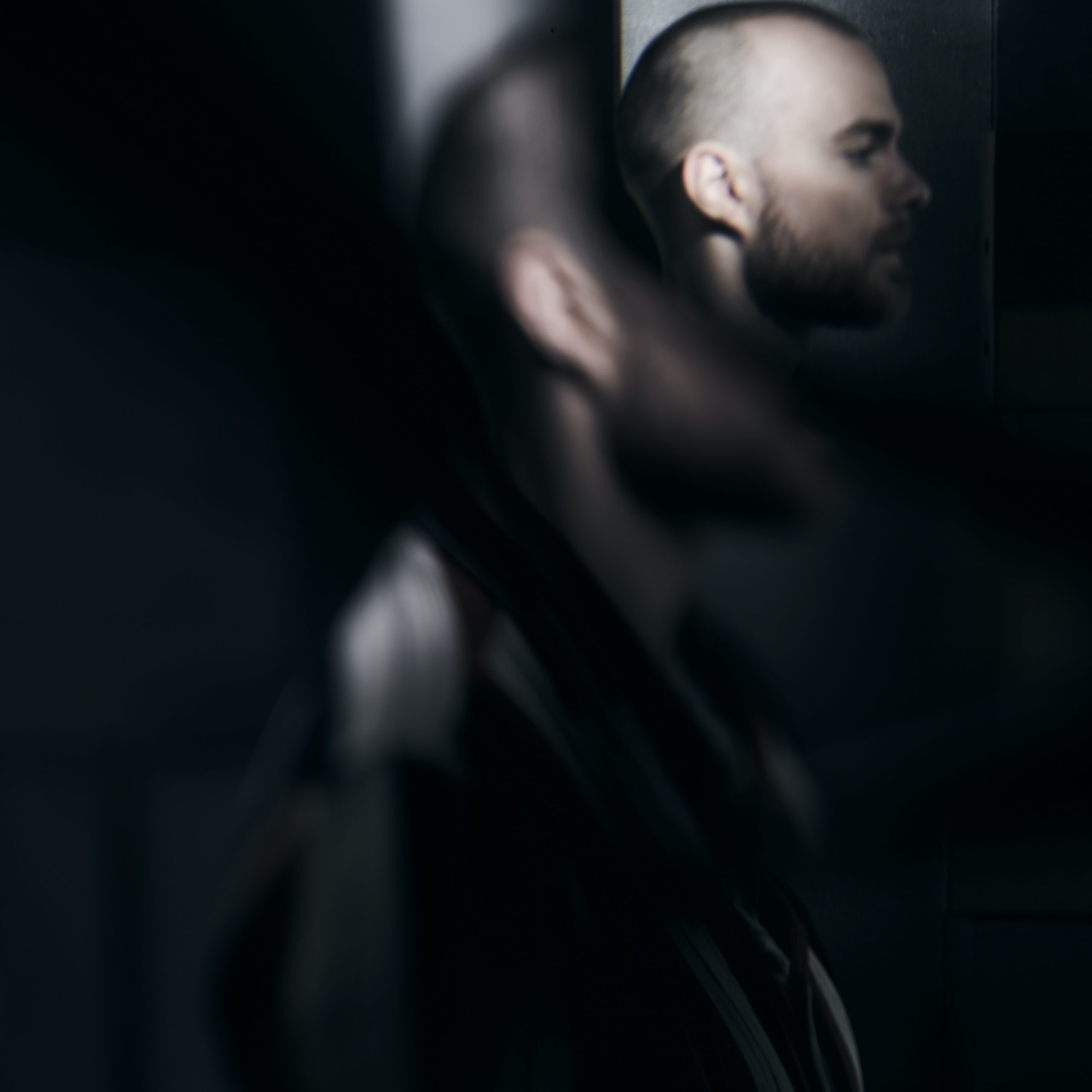
OK, so we need to talk about the song “Sunday Drive.” This is a crazy story and it's true! Can you please tell me some background?
Ásgeir: Ah yes, well… my family and I used to go on a drive every Sunday. We used to drive up to the top of a mountain or a hill that was close to the town where we lived. We always got out of the car and looked around and took some pictures. But on this particular day my mom and dad brought their new camera, but they didn’t really trust me because I was too little to take pictures with it. But my sister is a bit older than me so they let her take pictures with the camera and I got really upset. So I went back to the car and I stayed there. And I started doing this thing that I had tried before…Because I felt the car moving and it was kind of exciting.
Oh no!
Ásgeir: Because I was doing stuff with the handbrake and I felt the car moving a lot so I kept doing it. I don’t know why, but…
Because you were having a temper tantrum!
Ásgeir: [Laughs] Exactly. And then eventually the car just started rolling. And I remember very clearly I was just wearing shorts and I wasn’t wearing a seat belt. I was sitting in the back seat. I remember when the car started moving I put my hands on the window and I saw my mom there, and she was screaming. And I was screaming too and she was running to the car… But there was no way she could catch up to us. I was trying to open the doors… But I was rolling down the hill. There was no way to stop the car.
And when the car finally stopped rolling everything was completely destroyed. But somehow I managed to crawl out. I saw my mom and she was running down to me and we prayed there at the bottom of the mountain next to the destroyed car. And we were very lucky that there were some people not too far away who saw what happened and they called an ambulance. And they brought me to the hospital right away. I just got four stitches on my forehead! We thought it was much worse because I was covered in blood.
I didn’t know about writing a song about this. though, until I showed my producer the news article about it. It was actually his idea to write a song. The article was written from my mom’s perspective because they interviewed her. It really hit me when I read it the first time because it also included that my dad said that when he saw the car rolling down the hill he didn’t think I was gonna survive.
It does seem absolutely improbable that you did. I think that part of you is made of magic. So, you have released a few covers. Two of my favorites are “Heart Shaped Box” by Nirvana and classic Pixies rocker “Where is My Mind.” Have you dreamed of collaborating with any other musicians?
Ásgeir: I love working with other musicians and collaborating on music. I love the energy that comes out of working with somebody else. It’s something that I want to explore more. Usually when I’m writing songs, I want to be totally alone. When I covered those songs, I was trying to get out of my comfort zone. I never really wanted to work with other established musicians. I always said “no” when people asked me because I was too shy and I got too stressed about it. But I’ve been trying to do it much more. I sang on one song on an album by an artist from the Faro Islands called Eivør – she’s a really great singer. I’ve gotten a few other opportunities around here. We’ve been thinking about this new record that we would collaborate with another singer. We’ll see what happens.
Amazing! Now, my next two questions are less about music and more about my curiosity. Here in the states most people are from pretty much the same places. I don't really know anyone from Iceland, so could you tell me a bit about your family history?
Ásgeir: We’re from all over Iceland. I’m from the north and my mom is from the east. Her family were all farmers. My dad grew up in the north and his father was involved with fish and that’s kind of where I come from. I actually grew up all over Iceland. I think we moved like eight times while I was growing up. But in terms of my family, people talk a lot about being descendants from Vikings and I think that’s partly true but we were also from slaves. We’re really proud of this connection with the Vikings, but I’m not sure why because they don’t sound like they were really that great.
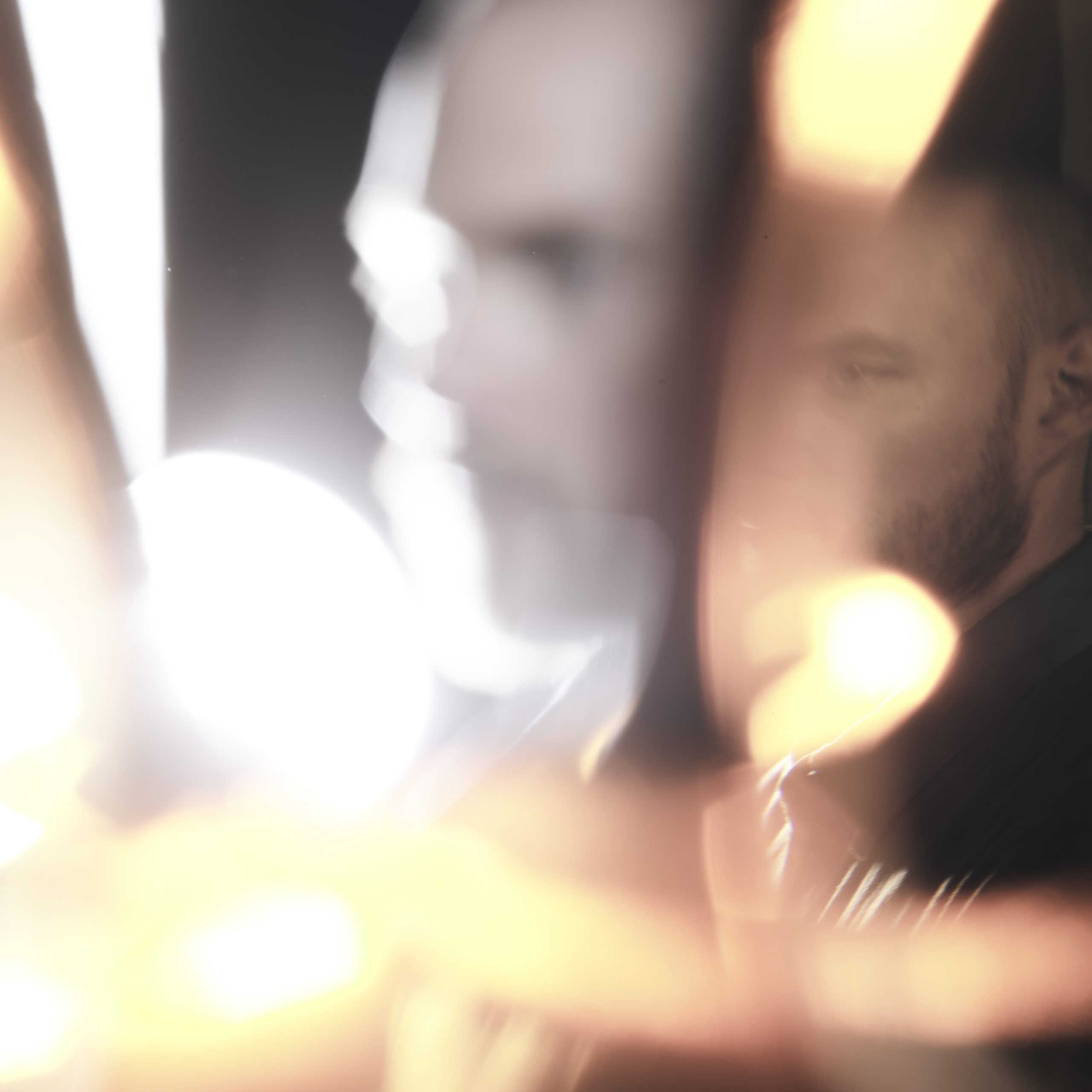
That's true. It was more pillaging and plundering and less Valhalla.
Ásgeir: Yes, it’s a cool image but I really think they did a lot of bad stuff. [Iceland] got our independence in the 1940s and before that we were under Denmark. After the war we got some money to build better houses. It wasn’t really that long ago but before that we pretty much lived in these houses that were built with grass on top.
I'm picturing the Shire from Lord of the Rings and The Hobbit. Like that?
Ásgeir: Yes, at least in the countryside mostly. My dad actually remembers people living in those houses. And he remembers going to visit them.
OK, my last question is something I’ve been wondering about since I started listening to your music: what does your name mean?
Ásgeir: It’s a Norwegian name. “As” means the old Nordic gods. “Geir” means some kind of weapon. So the whole name together means “weapon of the gods.”
— —
:: stream/purchase ‘The Sky Is Painted Gray Today‘ here ::
— — — —

Connect to Ásgeir on
Facebook, Twitter, Instagram
Discover new music on Atwood Magazine
? © Jonatan Gretarsson
:: Stream Ásgeir ::

